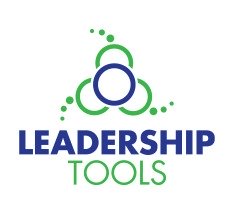Difficult-Groups Made Easier
Tools and techniques to make working with difficult-groups easier


Donna Rae has experience with many challenging groups. She is a consultant with thirty years of experience working with groups.
Scheffert is the owner of Leadership Tools, a consulting group focused on facilitation, strategic planning, and training.
She can also be found on LinkedIn and Twitter.

Minimize Conflict in difficult-Groups
Difficult-groups are one of the biggest fears of facilitators. Instead of declining an opportunity, follow a number of best practices. When you facilitate a public forum or meeting, which of these ‘best practices’ do you implement?
-Format rules for speakers-inform your speakers about your civility and time goals; share how you are going to monitor time as well as inappropriate comments
-Manage expectations of the participants-expectations are clear regarding the unacceptability of disrespectful an demeaning treatment; when policies or procedures are violated, consequences are followed through on by the group or moderator
-Use microphones strategically- the person with the microphone can control the room. Moderator always has microphone. If microphone is hooked to a sound system, it can be turned off in case of extreme incivility or time violations. If handheld microphones are used, assertive and strong people should hold the microphone and not give it to audience members.
-Record the meeting – announcing audio or video coverage increases accountability. Having people introduce themselves ‘on record’ prior to making comments is also useful.
-Questions in writing – If written and screened, the questions can be neutralized.
Adapted from McCorkle
McCorkle, Suzanne; Passion, Protest, or Just Plain Incivility?: Responding to Bad Behaviors in Public Meetings, A white paper prepared by Boise State University Public Policy Center, Nov. 2010
Obvious differences existed in organizational and group practices and language. Less obvious differences impacted convening a leadership team, developing relationships, engaging participation, fostering dialogue, leveraging social capital, navigating power and influence, and creating fruitful communication channels. Here are some expert recommendations for working with difficult-groups:
Multicultural facilitation intentionally considers differences in the knowledge and meaning systems of group members and the implication of those differences for facilitation. “Be aware that all facilitation strategies contain a cultural imprint, whether implicit or explicit. Facilitation is not value free.” (Christine Hogan)
"Cultural informants are bridge builders. They
can walk in two worlds with a conscious understanding of the differences. Thus,
they help cultures understand each other.” (A.C. Schauber)
Facilitators are encouraged to self disclose. Self-disclosure helps other see more fully what you believe, value, and do, and allows for finding common ground.
- Level one: sharing information regarding specific subject matter
- Level two: sharing personal information about you and your family or community
- Level three: sharing values and beliefs
“Professionals can connect better with some groups when they self-disclose at level three and allow others to do the same.” (Donna Beegle)
People experience marginality or mattering. One of the challenges was to help community members see that their ideas mattered to the large health care institution. Background and experience influence whether people are apt to participate in organizations and institutions.
“Marginality is a feeling that we do not belong or matter. People may be marginalized by race, ethnicity, nationality, socioeconomic background, or language. People ask themselves: “Are we part of things: do we belong; are we central or marginal? Do we make a difference: do others care about us and make us feel we matter?” (N.K. Schlossberg)
"Relationships may be prized more highly than any task.
The facilitator was mindful of normal cross-cultural expressions including the
use of indirect speech, stories, and expressing emotions. “Emotional expression and story telling are
signs about how much someone may care about the issue and not a distraction from
the task.” (Mitch Hammer)
What ideas do you have for managing difficult-groups?


Leadership Tools
For more in-depth information: Handbook for working with difficult groups: How they are difficult, why they are difficult, and what you can do about it.”
Trustworthy Source of Facilitation, Training, and Strategic Planning
Bring in an experienced expert when you need to:
• Align your team in a strategic direction
• Plan and run a challenging meeting
• Participate instead of lead a meeting or retreat
• Learn contemporary leadership and management concepts
Donna Rae Scheffert
612.360.4484
Or email at leadershiptools@charter.net
